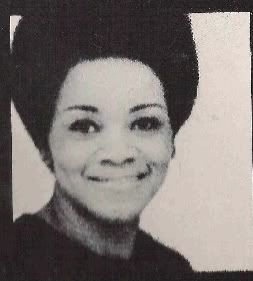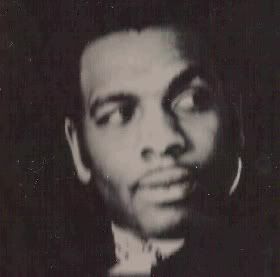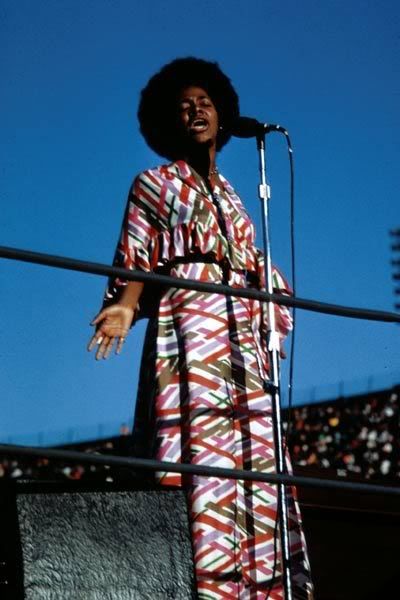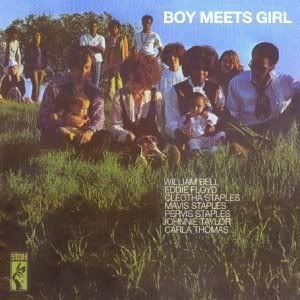"I am deeply suspicious of the way its fans talk about it. This has seeped into the wider discourse too - the emotional angle is by no means restricted to the devotees, experts and critics."
Essentially, the writer questions the way in which we see the concept of 'soul music'. Do we turn it into something it isn't?
"[Are] we are talking about heartfelt emotions, raw passion, a sincerity of feeling, expressed from the heart in natural ways. I am very doubtful, though, that this has anything to do with soul music and what makes it so wonderful..."
Do I confuse the singer on the stage with the character of the song, and come to believe that I am witnessing real emotion when somebody sings?
"...We aren’t hearing the real emotions of the performers - no one has three minutes of heartbreak, then three of anger at betrayal, then three of having a party, then three of being deeply in love…"
I think that is a little bit too reductionist. Everybody should be able to recognise that they are being entertained, not necessarily receiving a confession. But it would hardly be emotionally satisfying for the audience if the performer didn't have the ability to make us feel the emotion held within the song itself. I tend to think that soul fans are perhaps less not more likely to confuse the singer with the song than people who perhaps enjoy indie music, where the concept of the 'singer-songwriter' puts a much greater emphasis on the illusion that we are listening to the self-written personal thoughts of the artist as a visionary poet.
Martin did have an interesting anectdote to counter my certainty, taken from the Yahoo Southern Soul Group:
"I particularly remember their reactions to a new published interview with Sam Moore of Sam & Dave. He expressed a liking for various people, by no means all soul types or ‘credible’ artists. Elton John was the name that agitated them most - they were trying to make excuses, looking for a hidden agenda, wondering if there was talk of Elton writing a song for him or working with him. They couldn’t believe that a soul giant could really like Elton’s music, which is surely the obvious and completely plausible explanation..."
This behaviour I recognise, and I agree it should be discouraged. It is quite common for those who find out about soul music of the era for the first time to treat it reverentially, like an exclusive club to which only the true member may join - to the extreme of guarding it from perceived 'outside' influences (even against poor Reggie Dwight, who played piano with Major Lance, Doris Troy, the Bluebells and dozens more r&b acts who toured the UK in the 60s. Go and find a record by Long John Baldry & Bluesology to get an idea of that...). Yet we don't make the music - how can we say what it should be? Get out there and make some music yourself, then you can make it what you want it to be! Fortunately, it is an attitude that people grow out of with time and experience.
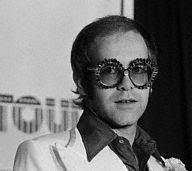

Soul Men: Sam & Reggie. Why not! I suggest Don't Go Breaking My Heart, in a real slow, relaxed tempo, country soul ballad in style. There, I said it, I won't take it back, and you can't make me!
Do people focus so much on the emotional impact of the music that they do not give the professional skill and the talent of the performers and musicians enough credit? Martin does have one more warning to give us to ponder, likening the way he has observed others discuss soul music as akin to the way people describe African footballers:
"The talk is of passion and raw emotion, an innate access to feeling, and not of intelligence and musical technique... It doesn’t take a vast amount of insight to spot the racism in all of this..."
Certainly, it is undeniable that I love the way the music feels. Sometimes, when I personally write about the music, I describe the sensations when a certain moment in the music kicks in. But I'm not sure that that in itself is inappropriate. After all, the feeling we get is why we listen to music in the first place. And it is one of the very real motivations behind the making of all kinds of popular music. Soul music, like all others, was and is a business. But if you were going to make a living from it, you had to get good at listening out for the things that appealed to your audience, and you had to practice and work hard at perfecting your delivery and routine to make people turn out and pay for a ticket, and to get booked at the next town along on the road. In a sense, describing the emotional impact of music is a way of celebrating the effort and honing of the performers' art, using layman's terms that we can all relate to. I do think that there should be more effort put in to documenting and describing the technical elements that go into producing soul music. I for one know that I simply do not possess the knowledge and musical ability to do so. But I can appreciate a good professional performance and a well-crafted song.
Martin takes as an example Al Green's cover version of the Bee Gees song How Can You Mend A Broken Heart?, and describes with eloquence the techniques the Rev. Green uses to 'inject' a sense of emotion into the song:
"This isn’t the natural outpouring of romantic pain; it’s not even method acting, where he deliberately feels it and so expresses it; this is the work of a powerful musical intelligence, who has carefully thought about every moment of the song, every word, every sound, and has calculated how to make it work with maximum effect."
Every word of this is correct, and well said. However, I have to wonder, in getting up to go to work each day at the Royal Studio, and picking out songs to record, surely somebody was thinking in some small way,"Hey, I like this song, it kind of reminds me of when ..." I started to think: has Martin in some way created a straw man to knock down when he defines the emotional content thus:
"I don’t believe that all he [Al Green] is doing is expressing how he feels, if he is doing that at all; he is finding ways to express what this lyric and song feels like, he is putting those emotions into the song, irrespective of how he might have personally felt at the time it was recorded."
The distinction Martin makes is that between the true emotions of the musicians, and the emotional effect that they imbue the song with. While at first I was sure this was obvious to all, I wonder if it is so obvious, when people come to listen with their own mind-sets and prejudgements. A lot of people like hearing the Supremes come on at a family disco; not all of them are going to be paragons of virtue. I start to see where soul fans can go wrong in assuming that the music in itself will neccessarily change people's attitudes.
"I just think the gap between the way people talk about music and the way it’s actually made is greater in soul music than any other, and I think the musical skill and intelligence on show in its many great recordings are therefore persistently undervalued, or even not noted at all."
I know that in general, soul fans are always eager to sit and listen to stories of the people who made the music, without the more ghoulish aspects of our modern-day paparazzi-style veneration of celebrities. While the emphasis in pop and rock culture is to read about the after-show parties, and drink and drug binges, it is quite other with soul. We spend countless hours pondering just exactly how the 'Stax sound' was created, trying to find out just what is a 'head arrangement', and tracing all of the doings of those fabulous rhythm sections from all over who created such music. Martin gives an excellent praisie of the personnel and methods of Willie Mitchell at the Royal Studio as an example of the knowledge and work that went into creating music that sounds as if Al Green is talking to your girlfriend and persuading her to Stay Together right in the room with you. It is a perfect example well-chosen. I would counter that I have yet to meet a dedicated soul fan who would not want to eagerly devour such knowledge and take the message fully on board. But Martin is right that we would be naive to assume that everybody gets it, and that we are often therefore, naive in how we describe soul.
I think that the interest people have in learning about the whole person and about their lives apart from the music, and the numerous accounts I have read of the genuine friendships between performers and soul researchers, reunions, help given to those who have experienced hard times, express a greater appreciation of the real human beings, flaws and all, who make the music we love. Read Martin Skidmore's article for yourself, and hopefully it will remind you, if you ever forgot.
Read Martin Skidmore's article "Everything We Say About Soul Is Wrong".
I have edited my post after considering some more the thoughts in Martin Skidmore's essay. It reminded me of some of the themes of soul music that this blog is supposed to be commenting upon.

